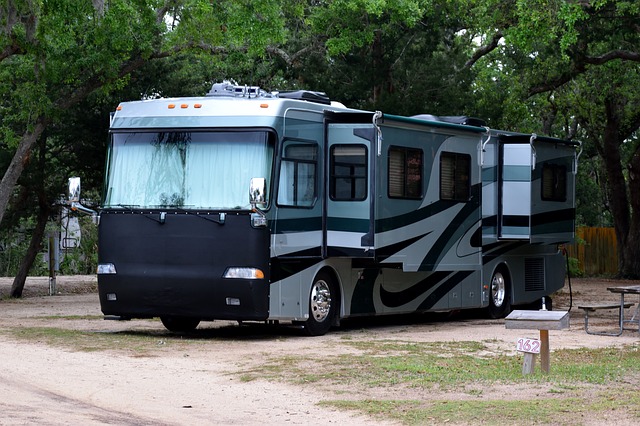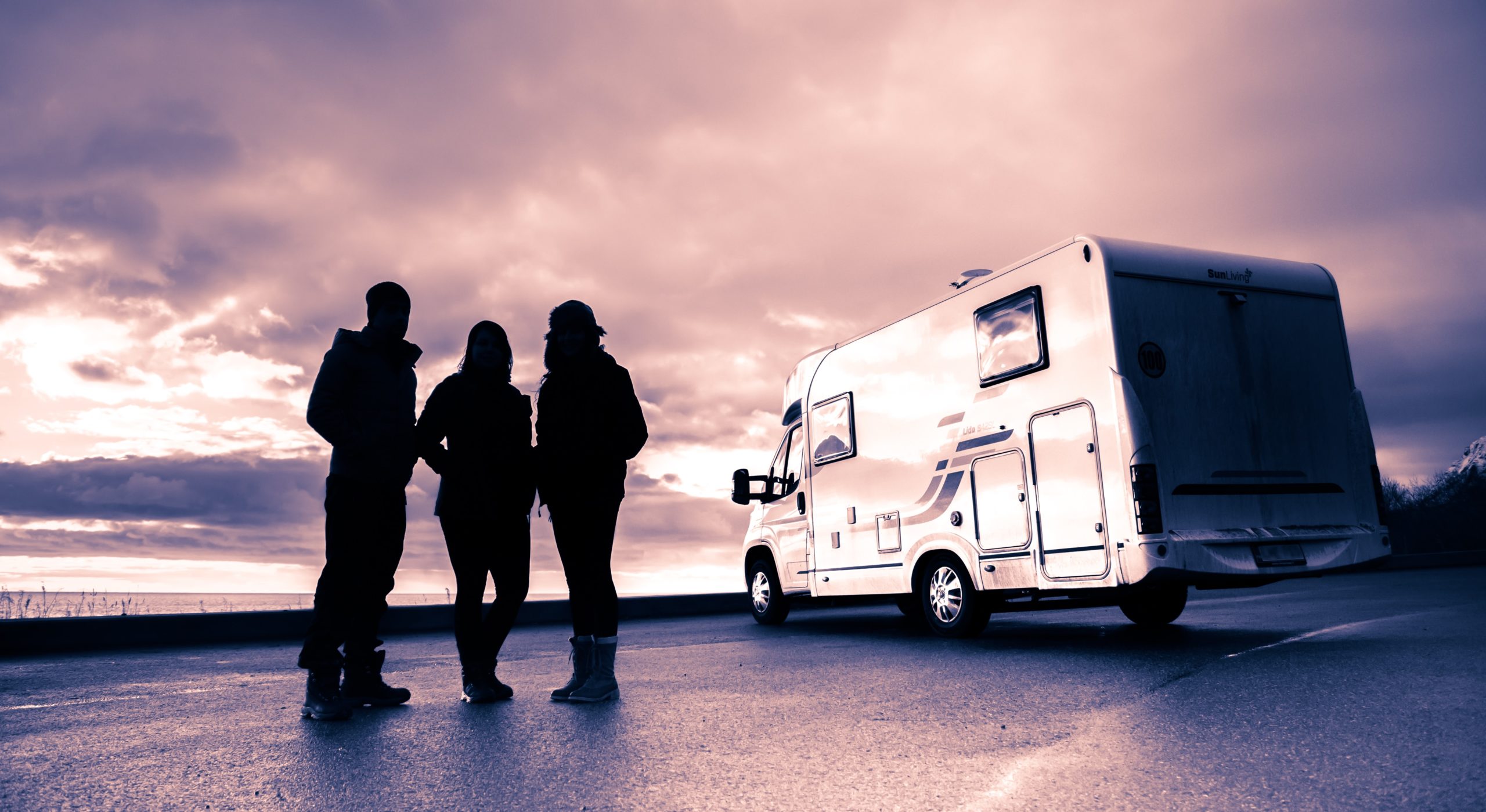
Recreational Vehicle And Motorhome Insurance
cannon
- 0
It’s a relatively new idea, but at the same time one that seems to have become more and more popular in the last few years. People are increasingly hopping on the RV bandwagon these days, especially those that live in scenic areas or who have an appreciation for the great outdoors.
Sadly, with all this popularity comes a greater number of accidents (as well as other unfortunate problems), putting recreational vehicle insurance – which is designed just for these vehicles – into higher demand than ever before!
This post will cover some important aspects of RV insurance and how it protects these vehicles against various sorts of accidents.
However, before we get into the specifics of RV and motorhome insurance, we should first take a quick look at what exactly an RV is.
What Is An RV?
An RV (short for recreational vehicle) is a vehicle that people use to travel on vacations and then put up in the mountains or by the beach for extended periods of time. They are similar in size to a motorhome or camper, but they’re designed to be used on wheels instead of being permanently attached to something else.
These vehicles come in many different types of shapes and sizes; however, there are essentially three different variations based on their size. They come in one- or two-berth versions, and as larger recreational vehicles that can sleep up to six people.
Today, there are a lot of different types of recreational vehicles that you can choose from, including motorhomes, caravans, campers and campervans. While each of these vehicles has their own unique features, I’m mainly going to be focusing on RVs for the remainder of this post. Let’s now take a look at what your RV insurance policy does for you and how that differs from your normal auto insurance and home insurance policies.
What Does An RV Insurance Policy Cover?
While there are many types of recreational vehicles that you can choose from, they all generally fall into one of two categories when it comes to what they’re used for. Some of them are primarily made for camping, while others are more meant for people who enjoy traveling in the open air.
This is why there are different types of policies for each, with camping-oriented recreational vehicles being covered by recreational vehicle insurance and travel-oriented recreational vehicles being covered by motorhome insurance.
No matter what type of vehicle you have, your RV insurance policy will protect your vehicle for many different reasons. This includes bodily injury claims and property damage claims from third parties who suffered injuries or losses as a result of an accident that was caused by you while you were driving the vehicle in question.
However, there are some limitations to RVs when this comes to what is covered in the event of an accident. For example, your insurer – as well as the law – will not cover property damage from the following:
- Property damage caused by the vehicle that is parked and unattended;
- Accidents that are caused by you while you’re driving a non-RV vehicle, even if you have an RV license; and
- Accidents that occur at speed events, races or rallies. This kind of activity is too dangerous for insurance coverage to be applied in this type of situation.
Aside from these things, your recreational vehicle insurance policy will cover just about everything else. This includes:
- The cost for repairs should your RV sustain any accidental damage while you’re out on the road. You’ll also be reimbursed for any towing and storage fees that are incurred as a result of this damage.
- The cost for any medications that are required by people who suffer injuries or damage to their property in an accident that is caused by you and your RV.
- Accidental injuries to people who were inside of the vehicle when you were driving it. This includes children and adults alike, whether they’re related to you or not.
As far as personal liability is concerned, this will be covered under your personal auto policy or your personal umbrella policy if you have one. You’ll have to pay the applicable deductible amount that’s listed in your policy. Thus, this is not something that you get free of charge when you choose to buy an RV insurance policy with your own insurer. However, for some, it could be easily overlooked if your auto and home policies offer you the same coverage and protection for personal liability claims.
RV Insurance Coverage Options That Will Protect Your Vehicle
Just like in any other kind of insurance case, there are several different options that you’ll have to choose from when it comes to RV insurance. You can buy it on your own or with the help of an insurance agent. There are also several different levels and different types of coverage that you can opt for as well. Before you do this, however, you’ll be asked about your RV’s value and the amount of liability coverage that you need as a primary or secondary policyholder. You may also be asked if you have a finance loan on your recreational vehicle and whether its worth is higher than $100,000 which will influence the amount of coverage that you need.
The following are the coverage options that you’ll have to choose from when it comes to your RV:
Full Coverage
This is the most comprehensive type of coverage that you can purchase. It covers all of your personal possessions, including anything in your vehicle that belongs to you or a person with whom you share a relationship. This includes anything that’s stored in your RV such as jewelry, electronics and cash along with your tools, books and other things related to work and hobbies. Full coverage also includes any parts and equipment that are needed for your recreational vehicle. This includes replacement costs for these items if they were stolen or lost as well as any repairs done on them or replaced by the manufacturer.
Extended Coverage
This type of coverage also covers your belongings but doesn’t cover your RV. It will, however, provide the best protection for your car or van if it’s stolen. If you want to take out a second policy and this one has extended coverage, that’s fine as long as you use it in conjunction with your other policy. If you decide to go with extended coverage on another policy, make sure that the limits are at least $100,000 for each claim and $300,000 combined. You can opt for full coverage if you have a specialty vehicle such as recreational vehicles that are used commercially or antique cars/trucks which can appreciate in value.
Modified Coverage
This type of coverage offers a reduction in the amount of protection that you need for your RV. It’s best suited for recreational vehicles that are used commercially or as a second home, if you have one. You will have to specify the use of your RV and how often it’s used on the road as well as specify the value of the vehicle. This coverage is cheaper than full coverage but is nothing more than liability insurance.
In the unfortunate event that your RV is stolen or damaged, the insurance company will pay for the fair market value of your RV at the time of loss, excluding any land or other improvements made to it. If you opt out of this type of insurance and only have liability coverage on your RV, you’re not covered if something happens to it while it’s traveling. Liability coverage will only cover things like injuries and property damage done by your vehicle. It won’t cover theft or damage done to your trailer itself.
As you can see, there are many options available to protect yourself and your RV from possible financial loss. Make sure that the coverage you choose is appropriate and fit your needs. Shop around for several rates to compare and find a policy that’s right for you.
Related
Post Disclaimer
The information contained in this post is for general information purposes only. The information is provided by me and while we endeavor to keep the information up to date and correct, we make no representations or warranties of any kind, express or implied, about the completeness, accuracy, reliability, suitability or availability with respect to the website or the information, products, services, or related graphics contained on the post for any purpose.

